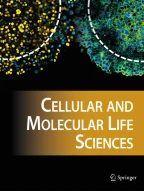Abstract.
We recently identified two thiazolidin compounds, 5-[(4-methylphenyl)methylene]-2-(phenylamino)-4(5H)-thiazolone (MMPT) and 5-(2,4-dihydroxybenzylidene)-2-(phenylimino)-1,3-thiazolidin (DBPT), that inhibit the growth of human non-small-cell lung and colon cancer cells independent of P-glycoprotein and p53 status. Here we further investigated the mechanism by which these thiazolidin compounds mediate their anticancer effects. Treatment of cancer cells with MMPT and DBPT led to a time-dependent accumulation of cells arrested in the G2/M phase with modulation of the expression of proteins such as cyclin B1, cdc25C, and phosphorylated histone H3. Moreover, treatment with MMPT and DBPT increased M-phase arrest with abnormal spindle formation. DBPT-mediated G2/M phase arrest and phosphorylation of cdc25C and histone H3 were abrogated when JNK activation was blocked either with SP600125, a specific JNK inhibitor, or a dominant-negative JNK1 gene. Moreover, DBPT-mediated microtubule disruption was also blocked by SP600125 treatment. Our results demonstrate that thiazolidin compounds can effectively induce G2/M arrest in cancer cells and that this G2/M arrest requires JNK activation.
Similar content being viewed by others
Author information
Authors and Affiliations
Corresponding author
Additional information
Received 9 August 2005; received after revision 23 August 2005; accepted 24 August 2005
Rights and permissions
About this article
Cite this article
Teraishi, F., Wu, S., Sasaki, J. et al. JNK1-dependent antimitotic activity of thiazolidin compounds in human non-small-cell lung and colon cancer cells. Cell. Mol. Life Sci. 62, 2382–2389 (2005). https://doi.org/10.1007/s00018-005-5365-z
Published:
Issue Date:
DOI: https://doi.org/10.1007/s00018-005-5365-z
